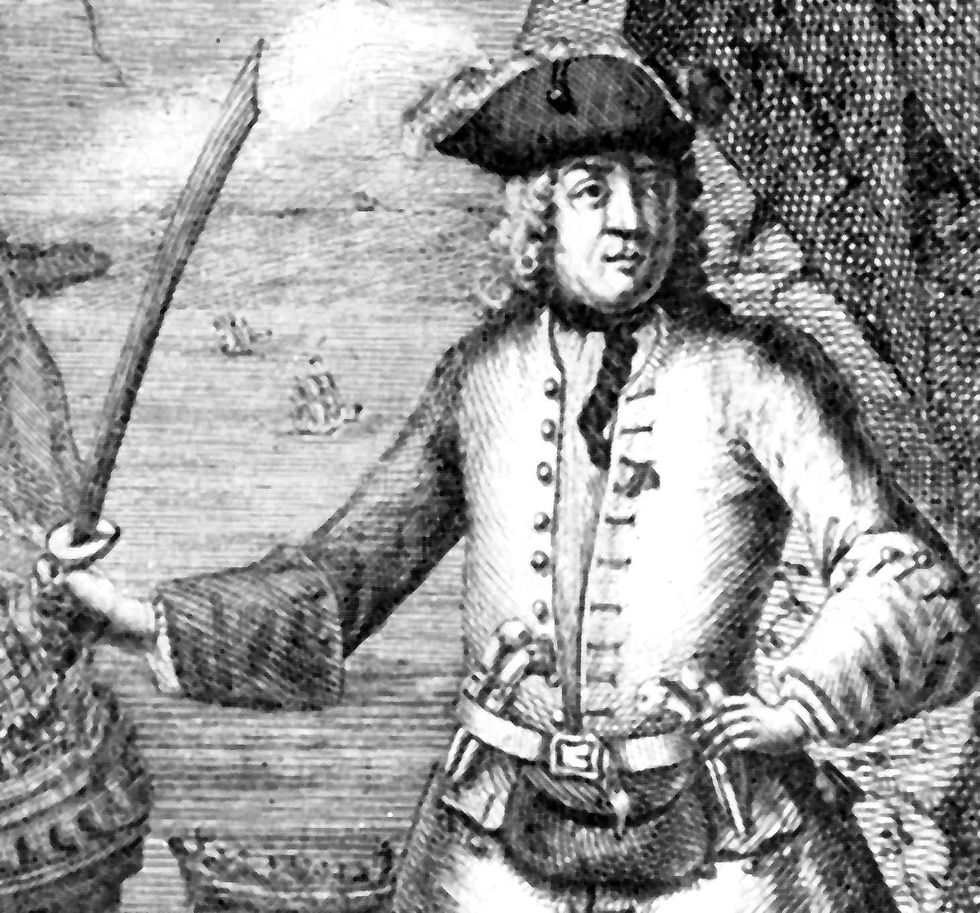A marine archaeologist claims to have solved the 300-year-old case
Don't Miss
Most Read
Trending on GB News
Treasure worth £90million could still be waiting to be found after a letter by Henry Avery was discovered.
A marine archaeologist claims to have solved the 300-year-old case following the disappearance of the "Pirate King".
Dr Sean Kingsley - who is also a pirate expert - said a letter believed to have been written by Avery reveals that he had taken a royal pardon and went into service as a spy.
Kingsley has now co-authored a book, The Pirate King: The Strange Adventures of Henry Avery and the Birth of the Golden Age of Piracy, to revive the story of one of the most infamous men in Britain.

Treasure worth £90million could still be waiting to be found after a letter by Henry Avery was discovered
Getty/ Wiki Commons images
Avery started out as a sailor working for the Spanish shipping expedition but after his employer refused to pay, he and 80 revolters stole a ship in May 1694.
The following year, they raided a ship belonging to Aurangzeb, the Mughal Emperor in India and stole treasure worth £600,000 — £90 million today.
The theft was one of the biggest acts of piracy ever known which resulted in a bounty being put out for Avery.
However, within a year, he disappeared and was never seen again.
LATEST DEVELOPMENTS:
In 1978, a misplaced letter was located in the Scottish Records Office by writer, Zélide Cowan.
Cowan's husband Rex is Kingsley’s co-author and a lawyer turned shipwreck hunter.
"Pirates weren’t good guys, but Avery is misunderstood," Kingsley told The Times.
"Not only did he strike it big, he escaped the authorities with his head intact. Throw in vanishing in a puff of smoke, and you have the perfect mystery."

A marine archaeologist claims to have solved the 300-year-old case following the disappearance of the 'Pirate King'
Wiki Commons images
Kingsley is convinced that the letter is a genuine copy of a letter by Avery written in Falmouth in 1700.
The letter states that the "Pirate King" was working to prevent a "Catholic" invasion from France.
"In this, when he wants to conceal his meaning he uses letters and numbers in a code, and this is exactly what spies and ambassadors were using. It’s also really unlikely that anyone would have the intelligence and information to forge it," Kingsley added.
The letter also includes information about the treasure and implies that some is still waiting to be found.









